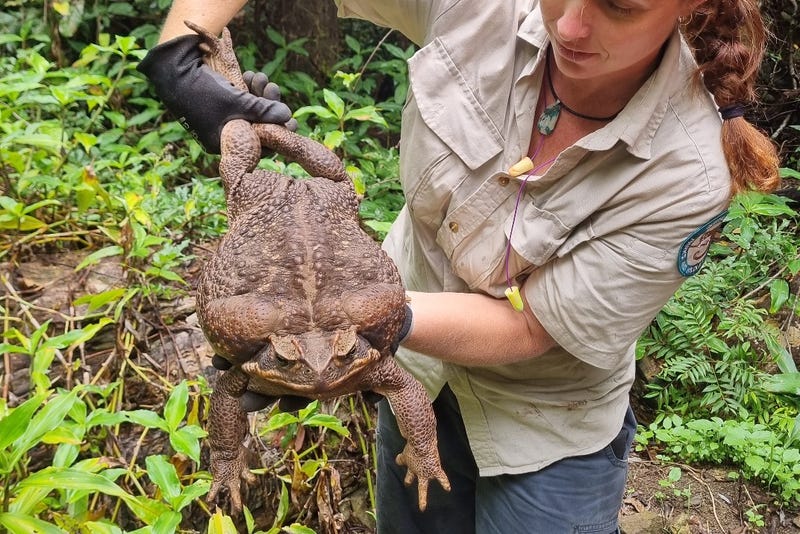
Prior to 1935, Australia had no toads. Now it's home to one that's so large, it's been dubbed "Toadzilla."
The monstrous amphibian -- which was discovered by a park ranger in Queensland -- tips the scales at nearly six pounds and is six times bigger than the average toad, animal officials say.
The gigantic animal was found last week in Conway National Park, near Airlie Beach. Ranger Kylee Gray said a snake slithering across the track forced them to stop their vehicle. When she stepped out and looked down, she gasped when she saw the behemoth.
"I reached down and grabbed the cane toad and couldn't believe how big and heavy it was," Gray said in a statement. “We dubbed it Toadzilla, and quickly put it into a container so we could remove it from the wild."
Toadzilla was taken back to the rangers' base, where it tipped the scales at 2.7kg, or 5.94 pounds.
"We believe it’s a female due to the size, and female cane toads do grow bigger than males," Gray said. "I’m not sure how old she is, but cane toads can live up to fifteen years in the wild – so this one has been around a long time."
Toadzilla has since been euthanized "due to the environmental damage they cause," the Queensland Department Of Environment and Science said.
"A cane toad that size will eat anything it can fit into its mouth, and that includes insects, reptiles and small mammals," Gray explained. The species can be poisonous to wildlife, as well.
Toadzilla has been sent to the Queensland Museum for further analysis, as she might be the largest on record.
The current Guinness World Record for largest toad is 5.84 pounds, set by a pet toad in Sweden named Prinsen (The Prince) -- also a cane toad.
According to National Geographic, cane toads are large, warty, poisonous amphibians native to South and Central America and considered to be one of the worst invasive species in the world. They were introduced in many countries with the hope that they would help control agricultural pests -- but the toads failed at controlling insects and instead reproduced rapidly, laying between 8,000 and 30,000 eggs at a time. They typically weigh 2.9 pounds.


